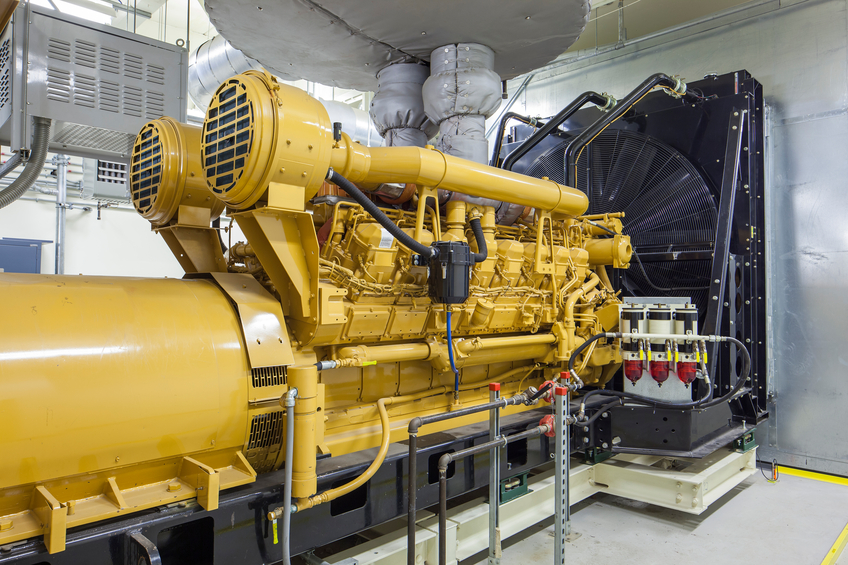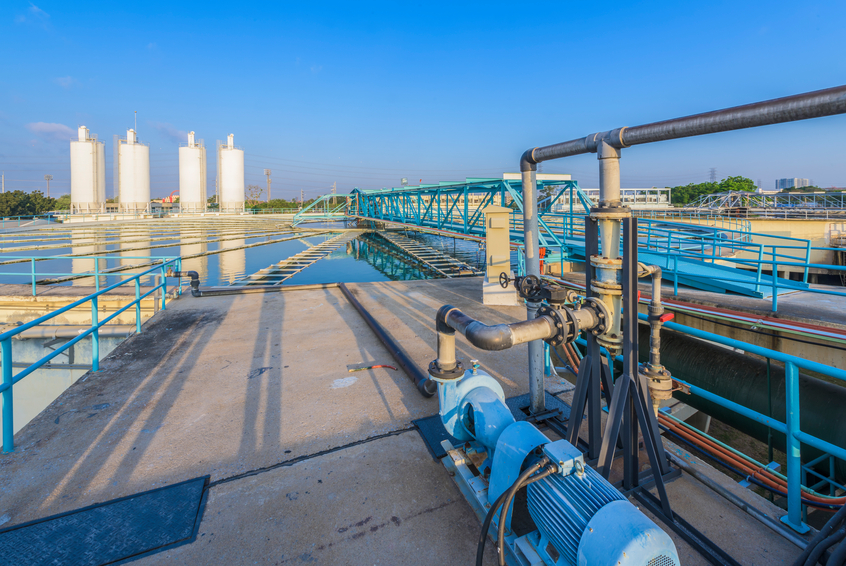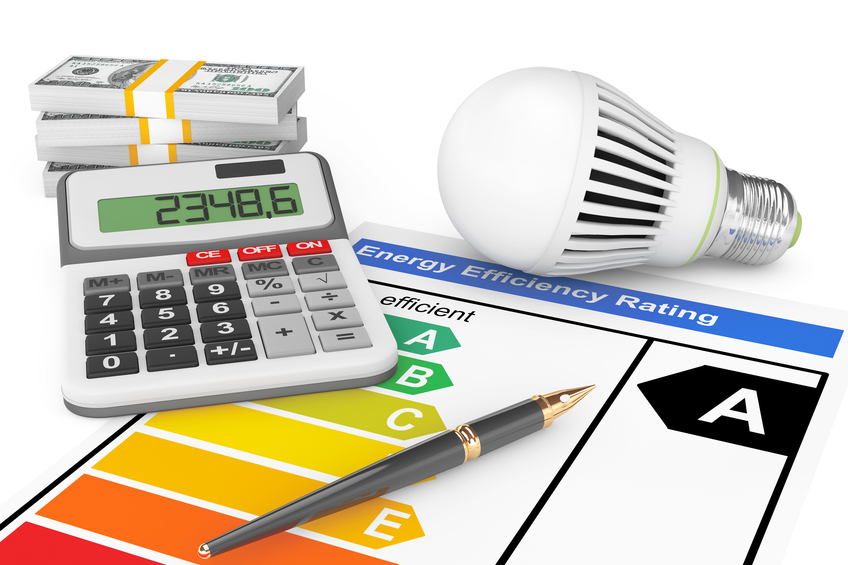Illinois Energy Efficiency & Laws/Rules/Ethics/Sexual Harassment 30 PDH Discount Package 2
Residential Solar PV Energy Guide (R03-015)
Small Wind Electric Systems to Power Your Home (R03-017)
Premium Efficiency Motor Selection and Application Guide (E07-002)
Heating and Cooling System Upgrades (M03-022)
Improving Process Heating Systems Performance (M05-026)
Advancing Systems and Technologies to Produce Cleaner Fuels (P03-003)
Wireless Occupancy Sensors for Lighting Controls (E01-012)
Sexual Harassment Prevention for Illinois Professionals (IL1-001)
Engineering Laws, Rules, and Ethics for Illinois Professional Engineers (IL2-001)

This online engineering PDH course presents guidelines on how to reduce mechanical system water use in residential buildings. Mechanical systems are frequently utilized to provide heating and cooling for residential properties. They typically fall into two categories: centralized and decentralized systems.
Centralized mechanical systems provide heating and cooling from a central location, such as a mechanical room or utility penthouse. These systems are more common in mid- and high-rise multifamily properties and can include cooling towers, boilers, and steam systems, each of which uses water as the heat transfer medium. As a result, the use of water for building heating and cooling can be significant and using sound management practices is a good opportunity for water savings.
Decentralized mechanical systems treat each unit of a multifamily property as its own space, as if each unit were a stand-alone single-family residence. These systems do not typically use process water, so they are not the focus of this water efficiency management guide.
This 2 PDH online course is intended for mechanical, environmental and civil engineers, as well as other technical personnel who are interested in learning more about reducing water use in mechanical systems.
This PE continuing education course is intended to provide you with the following specific knowledge and skills:
- Understanding the basics principles behind single-pass cooling, cooling towers and boiler/steam systems
- Understanding mechanical system water use
- Familiarizing with the maintenance and best management practices
- Knowing the mechanical systems retrofit and replacement options
- Familiarizing with the water savings calculations and assumptions
Upon successful completion of the quiz, print your Certificate of Completion instantly. (Note: if you are paying by check or money order, you will be able to print it after we receive your payment.) For your convenience, we will also email it to you. Please note that you can log in to your account at any time to access and print your Certificate of Completion.

This online engineering PDH course provides information on solar photovoltaic (PV) technology, and presents a series of steps that will help you reach a well-informed conclusion about making an investment in solar energy systems.
Solar PV technology is the process that converts sunlight into electrical current when it strikes suitable materials called semiconductors in a device. Sunlight is absorbed by semiconducting materials, such as silicon, releasing electrons from their atoms. The electrons flow through the semiconductor to produce direct current (DC) electricity.
The technologies associated with the building blocks of a solar array project may seem complicated; however, the system design and construction are relatively simple and straightforward. Familiarity with the design and construction procedures is beneficial in becoming a more educated consumer and owner.
This 3 PDH online course is applicable to electrical and mechanical engineers as well as energy specialists who are interested in expanding their knowledge on solar PV technology and understanding the detailed considerations for installing similar systems for generating electricity.
This PE continuing education course is intended to provide you with the following specific knowledge and skills:
- Familiarizing with the building blocks of solar PV systems
- Understanding the preliminary research process prior to designing a system or purchasing its components
- Learning about site assessment and determining the ideal conditions for the solar array
- Understanding the different considerations for roof and ground-mounted systems
- Learning how to formulate solar array designs, calculations and sizing requirements
- Identifying the significant components of a solar array as part of the equipment selection process
- Gaining a general overview of contracts, installation, maintenance and monitoring of solar energy systems
Upon successful completion of the quiz, print your Certificate of Completion instantly. (Note: if you are paying by check or money order, you will be able to print it after we receive your payment.) For your convenience, we will also email it to you. Please note that you can log in to your account at any time to access and print your Certificate of Completion.

This online engineering PDH course provides basic information about small wind electric systems to help you decide if wind energy will work for you.
Wind is created by the unequal heating of the Earth's surface by the sun. Wind turbines convert the kinetic energy in wind into mechanical power that runs a generator to produce clean electricity.
Can I use wind energy to power my home? More people across the country are asking this question as they look for a hedge against increasing electricity rates and a way to harvest their local wind resources. Although wind turbines large enough to provide a significant portion of the electricity needed by the average U.S. home generally require 1 acre of property or more, approximately 19.3% of the U.S. population lives in rural areas and may own land parcels large enough to accommodate a wind energy system.
This 3 PDH online course is applicable to electrical and mechanical engineers and energy professionals who are interested in learning more about small wind electric systems.
This PE continuing education course is intended to provide you with the following specific knowledge and skills:
- Familiarizing with wind energy, terminology, and basic principles of wind turbines
- Understanding the different ways to make a home more energy efficient
- Understanding how and when small wind energy systems provide a practical and economical source of electricity
- Learning about the size of wind turbines required for specific applications
- Learning about the basic parts of a small wind electric system
- Knowing where to find certified small wind turbines, as well as installation and maintenance support
- Calculating how much energy a wind electric system will generate
- Gaining a general overview of hybrid wind energy systems
Upon successful completion of the quiz, print your Certificate of Completion instantly. (Note: if you are paying by check or money order, you will be able to print it after we receive your payment.) For your convenience, we will also email it to you. Please note that you can log in to your account at any time to access and print your Certificate of Completion.

This online engineering PDH course provides guidance in new motor purchase decisions, and helps in identifying the energy and cost savings for motors that should be replaced with premium efficiency units.
The National Electrical Manufacturers Association (NEMA) adopted a NEMA Premium® efficiency motor standard in August of 2001. A motor can be marketed as a NEMA Premium motor if it meets or exceeds a set of minimum full-load efficiency levels.
These premium efficiency motor standards cover the 1 horsepower (hp) to 500 hp three-phase low-voltage NEMA Design A and B general, special, and definite purpose induction motors that are in widespread use in U.S. industrial facilities. The energy savings from replacing in-service standard and energy efficient motors with premium efficiency motor models can be substantial.
This 7 PDH online course is applicable to electrical and mechanical engineers and professionals who are interested in learning more about the performance, properties, selection and applications of premium efficiency motors.
This PE continuing education course is intended to provide you with the following specific knowledge and skills:
- Familiarizing with the in-service motor population and motor uses in the industrial sector
- Understanding the evolution of voluntary and mandatory motor efficiency standards
- Learning how to evaluate motor efficiency opportunities, address application considerations, and determine cost-effectiveness
- Gaining an overview of currently available and emerging advanced “Super Premium” efficiency motor technologies
- Understanding the preventive and predictive maintenance activities necessary to keep premium efficiency motors operating at peak efficiency
Upon successful completion of the quiz, print your Certificate of Completion instantly. (Note: if you are paying by check or money order, you will be able to print it after we receive your payment.) For your convenience, we will also email it to you. Please note that you can log in to your account at any time to access and print your Certificate of Completion.

This online engineering PDH course identifies the opportunities for improving the performance of the heating and cooling system based on the type of system that is in place.
Heating and cooling systems are the largest single consumers of energy in buildings. These systems condition the air within a building so that occupants are comfortable. Heating and cooling systems consist mainly of chillers, boilers, cooling towers, and pumps. There are central heating and cooling systems, and unitary systems that combine heating and cooling. Opportunities exist for improvement to both central and unitary systems.
This 3 PDH online course is applicable to engineers, contractors, designers and other technical professionals who are involved in the retrofit of existing heating and cooling systems.
This PE continuing education course is intended to provide you with the following specific knowledge and skills:
- Understanding the best opportunities available for upgrading central cooling systems including chillers, cooling towers, water side economizers and pumps
- Understanding the best opportunities available for upgrading central heating systems including boilers and furnaces
- Understanding the best opportunities available for unitary systems including packaged or rooftop units, split system packaged units, air source heat pumps and water loop heat pump systems
- Learning about new strategies aimed at saving energy such as geothermal heat pumps, district cooling and heating, radiant heating and cooling, cool storage, high temperature difference distribution, evaporative cooling, and non-electric cooling
In this professional engineering CEU course, you need to review "Heating and Cooling System Upgrades" of the Energy Star Building Manual. (Energy Star is a joint program of the U.S. Environmental Protection Agency and the U.S. Department of Energy).
Upon successful completion of the quiz, print your Certificate of Completion instantly. (Note: if you are paying by check or money order, you will be able to print it after we receive your payment.) For your convenience, we will also email it to you. Please note that you can log in to your account at any time to access and print your Certificate of Completion.

This online engineering PDH course describes basic process heating applications and equipment, and outlines opportunities for energy and performance improvements. It also discusses the merits of using a systems approach in identifying and implementing these improvement opportunities for Fuel-Based and Electric-Based heating systems. Furthermore, it provides recommendations to financially justify process heating improvement projects (System Economics).
Process heating is essential in the manufacture of most consumer and industrial products, including those made out of metal, plastic, rubber, carbon fiber, concrete, glass, and ceramics. Process heating systems are broken into three basic categories: Fuel-Based Process Heating, Electric-Based Process Heating, and Steam-Based Process Heating all of which are discussed in details.
This 5 PDH online course is applicable to mechanical, industrial and process engineers, designers, manufacturers and all personnel involved in the planning, design and installation of process heating systems.
This PE continuing education course is intended to provide you with the following specific knowledge and skills:
- Understanding the basics behind process heating operations
- Familiarizing with the common types of process heating systems and equipment
- Recognizing efficiency opportunities for fuel-based and electric-based heating systems
- Learning how to financially justify process heating improvement projects
Upon successful completion of the quiz, print your Certificate of Completion instantly. (Note: if you are paying by check or money order, you will be able to print it after we receive your payment.) For your convenience, we will also email it to you. Please note that you can log in to your account at any time to access and print your Certificate of Completion.

This online engineering PDH course provides information on advancements made in systems and technologies related to oil and natural gas development to produce cleaner fuels. It pays special attention to advancements aimed at reducing the environmental impact associated with the production of oil and natural gas. It also discusses the safety conditions for those involved in the development process.
Fossil fuel resources account for 82% of total U.S. primary energy use because they are abundant, have a relatively low cost of production, and have a high energy density—enabling easy transport and storage. The infrastructure built over decades to supply fossil fuels is the world’s largest enterprise with the largest market capitalization. Of fossil fuels, oil and natural gas make up 63% of energy usage. Across the energy economy, the source and mix of fuels used across these sectors is changing, particularly the rapid increase in natural gas production from unconventional resources for electricity generation and the rapid increase in domestic production of shale oil. The United States will, for the foreseeable future, continue to rely heavily upon oil and natural gas to support its economy, national security, and energy security.
This 3 PDH online course is applicable to petroleum, chemical, mechanical and sustainability engineers and other technical personnel who are interested in learning more about the trends in advancing oil and gas development systems and technologies.
This PE continuing education course is intended to provide you with the following specific knowledge and skills:
- Understanding the Oil and Gas industry in the Energy Economy of the United States
- Familiarizing with the latest technological advancements in Oil and Gas
- Learning about the emerging research opportunities and the four themes to address R&D challenges
- Learning the about the Oil and Gas challenges through specific technology assessments
- Understanding the risks associated with the various aspects of oil and natural gas development
- Learning from past oil and natural gas development mistakes and disasters to ensure they are not repeated
Upon successful completion of the quiz, print your Certificate of Completion instantly. (Note: if you are paying by check or money order, you will be able to print it after we receive your payment.) For your convenience, we will also email it to you. Please note that you can log in to your account at any time to access and print your Certificate of Completion.

This online engineering PDH course provides basic information on wireless occupancy for lighting controls.
Lighting use constitutes about 20% of the total energy consumption in commercial buildings. Adding lighting controls is a simple retrofit option than can save on energy costs while helping to meet agency and federal energy savings mandates. Some energy codes and federal standards require the use of lighting controls.
Studies have shown that adding lighting controls can reduce lighting energy use 10% to 90% or more depending on the use of the space in which the sensors are installed. One study conducted on a university campus found that installing wired occupancy sensors to control lighting in more than 200 rooms in 10 buildings provided an annual cost savings of about $14,000 with a simple payback of 4.2 years.
This 1 PDH online course is applicable to electrical engineers and others interested in gaining knowledge about wireless occupancy for lighting controls for a better sustainable design.
This PE continuing education course is intended to provide you with the following specific knowledge and skills:
- Familiarizing with the different types of occupancy sensors and their characteristics including microphonic, ultrasonic, bluetooth, video image and dual technology
- Gaining a general overview of the codes and standards of lighting controls
- Learning about the types of light source to use for occupancy sensors
- Understanding how wireless sensors are powered and the best practices in using wireless sensors
- Learning about the cost considerations for wire and wireless sensors
Upon successful completion of the quiz, print your Certificate of Completion instantly. (Note: if you are paying by check or money order, you will be able to print it after we receive your payment.) For your convenience, we will also email it to you. Please note that you can log in to your account at any time to access and print your Certificate of Completion.

This online PDH course presents a training on sexual harassment prevention in order to adopt and actively implement policies that ensure that workplaces are safe for employees to report and express their concerns about sexual harassment.
The Illinois Human Rights Act makes it a civil rights violation “[f]or any employer, employee, agent of any employer, employment agency or labor organization to engage in sexual harassment.” 775 ILCS 5/2-102(D).
The Illinois General Assembly finds that tolerance of sexual harassment has a detrimental influence in workplaces by creating a hostile environment for employees, reducing productivity, and increasing legal liability. Therefore, every employer in the State of Illinois is required to provide employees with sexual harassment prevention training that complies with section 2-109 of the Illinois Human Rights Act (“IHRA”).
This 1 PDH online course is applicable to professionals licensed in the State of Illinois and who are required to demonstrate continuing professional competency in sexual harassment prevention training as a condition of their license renewal.
This PE continuing education course is intended to provide you with the following specific knowledge and skills:
- Gaining an overview of sexual harassment prevention consistent with the Illinois Human Rights Act
- Familiarizing with types of unlawful sexual harassment, unwelcome behavior and working environment
- Learning about examples of conduct that may constitute unlawful sexual harassment
- Understanding sexual harassment in online environments
- Understanding employer responsibilities in the prevention, investigation, and corrective measures on sexual harassment
- Familiarizing with the Federal and State statutory laws concerning sexual harassment including remedies available to victims
Upon successful completion of the quiz, print your Certificate of Completion instantly. (Note: if you are paying by check or money order, you will be able to print it after we receive your payment.) For your convenience, we will also email it to you. Please note that you can log in to your account at any time to access and print your Certificate of Completion.

This online engineering PDH course presents the laws and rules of ethics and professional responsibility governing the practice of engineering in the State of Illinois.
Engineering ethics is (1) the study of moral issues and decisions confronting individuals and organizations involved in engineering and (2) the study of related questions about moral conduct, character, ideals and relationships of peoples and organizations involved in technological development (Martin and Schinzinger, Ethics in Engineering).
Excerpts from the Professional Engineering Practice Act of 1989, 225 ILCS 325 and the Illinois Administrative Code, Part 1380, which relate to the rules of profession conduct, continuing education requirements, proper use of seal and other pertinent regulatory provisions are presented in this course.
This 2 PDH online course is applicable to Professional Engineers licensed in the State of Illinois who are required to demonstrate continuing professional competency in the Illinois Laws, Rules and Ethics as a condition of license renewal. For each renewal period, every licensee must complete thirty (30) professional development hours, at least one (1) of the 30 hours must be in professional ethics and one (1) of the 30 hours must be in the laws and rules regulating the practice of engineering in the State of Illinois.
This PE continuing education course is intended to provide you with the following specific knowledge and skills:
- Familiarizing with the laws and rules regulating the practice of engineering in the State of Illinois
- Learning about engineering ethics, the rules of professional conduct and responsibility
- Understanding the role of the Illinois Board and its disciplinary authority
- Understanding the continuing education requirements in the State of Illinois
- Gaining an overview of disciplinary cases, violations and their corresponding penalties imposed by the Illinois Board
Upon successful completion of the quiz, print your Certificate of Completion instantly. (Note: if you are paying by check or money order, you will be able to print it after we receive your payment.) For your convenience, we will also email it to you. Please note that you can log in to your account at any time to access and print your Certificate of Completion.